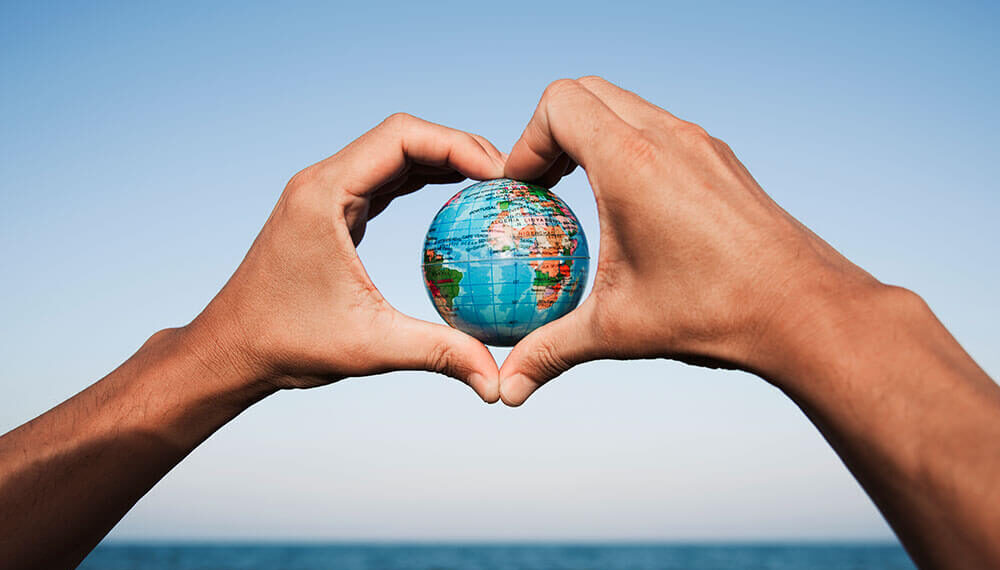Ethical sourcing isn’t just something businesses say they strive for, but something they can do and realize substantial benefits. Improving the world and making a difference in lives is good business from both an ethics and branding viewpoint.
Ethical sourcing is valuable to millennials, and even moreso to Generation Z. Both generations are willing to pay more for goods that demonstrate social responsibility and a commitment to sustainability. The waste of fast fashion or disposable goods with questionable manufacturing lineage turns off the new belief-driven buyers.
A company that shows signs of being socially or environmentally irresponsible has a tremendous brand reputation at risk in an environment where 75% of consumers claim they are likely to act against such companies. An unfavorable social media post, negative online review, or organized boycott can destroy brand value in a way that might not be recoverable.
Companies that source ethically build consumer trust and brand value customers are willing to pay more for and stay with long-term. Consumers associate themselves with positive brands and are likely to tell others about your company and its ethical practices with a sense of pride.
While many companies are moving toward ethical sourcing, there are a few leaders worth highlighting.
Table of Contents
Patagonia
Number one on just about every list is Patagonia. The company differs from “fast fashion” brands that encourage buying this month’s item and then disposing of it when it is no longer in style by producing products of the highest quality that are timeless. Patagonia’s marketing centers around less is more and reduces consumerism in favor of products that last. The company is about quality products and ethical approaches over cheap quantity.
Patagonia supports sustainable initiatives like donations to environmental causes, using organic cotton and recycled materials, and providing a lifetime warranty on their products. Their sourcing centers around using sustainable goods and less of them, and its worldwide factories are fair trade centered.
Knotty Knickers
Underwear company Knotty Knickers quickly became the leading inclusive, body-positive subscription service in its market throughout the United States, focusing on a commitment to ethical sourcing. In 2020, Knotty Knickers saw its subscription base expand to 200,000 in North America.
“Much of our growth is due to transparency and our commitment to working with quality suppliers and manufacturers,” said a representative of the company. “We work with vendors and suppliers dedicated to improving the lives of their employees and providing safe, equitable work conditions.”
The commitment to transparency and ethical manufacturing has produced tremendous growth with the younger customer segments so crucial to brand growth.
Pact
Using fair trade certified, organic cotton and carbon offset shipping have made Pact a brand with a dedicated following. The company goes to tremendous lengths to ensure its entire supply chain, starting with growing and harvesting to the final manufacture of its clothing, is responsible. The Colorado-based company has established itself as a clothing company beloved by millennials and Gen Z.
Hass
A certified B Corp out of Los Angeles, Hass uses only certified organic fabrics, renewable and biodegradable materials, and non-toxic dyes in its clothing. An offshoot of bedding company, Avocado, Hass produces comfy basics ethically, and every purchase feeds one person in need.
Conscious Coffees
Coffee is considered a morning necessity across North America, and Conscious Coffees produces delicious coffee while being wholly dedicated to ethical production. The company is committed to being fair trade and sustainable in its business processes.
As part of its ethical sourcing, Conscious Coffees helps growers in Central and South American countries learn to become proprietors of their own coffee businesses. Additionally, the company contributes to the USAID farmer-to-farmer initiative, which helps Central and South American coffee farmers improve in their trade.
Dr. Bronner’s
One of the world’s first organic soap brands, Dr. Bronner’s has grown tremendously with a brand identity centered around quality, organic products using fair trade sourced raw materials. The company advocates for ethical initiatives like animal rights, organic agriculture, and income equality. Dr. Bronner’s embraces progressive and ethical practices in everything it does, even down to its company compensation structure. It only continues to grow as young consumers support its mission through purchases of its products.
Levi’s
The jeans giant and legacy brand, Levi’s, sources and produces ethically. The company where jeans began uses ethically sourced cotton, innovates to reduce water use, and creates recyclable denim. Additionally, the company has many give-back programs and produces inclusive sizes. With a presence in over 100 countries, Levi’s is a market mover and the largest company on this list.
Fair Trade Winds
It would make sense that a company named after fair trade is a Fair-Trade Federation member that sells organic and sustainable materials. Washington-based Fair Trade Winds, carries brands made by talented artisans that work in fair-trade cooperatives. Promoting and marketing the goods of these hard-working artisans helps improve their lives, the lives of their families, and the communities in which they live. The company has locations nationwide and an online shop.
That’s just eight of many outstanding companies dedicated to using sustainable, ethically produced goods from around the world. Every time they sell a product, someone’s life elsewhere improves. Their brands reflect value creation and attract and retain customers that have their identities interwoven with brands that they can feel good about purchasing.

